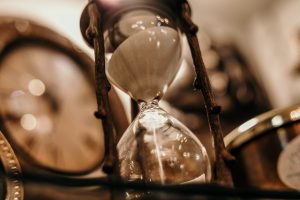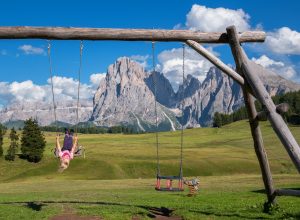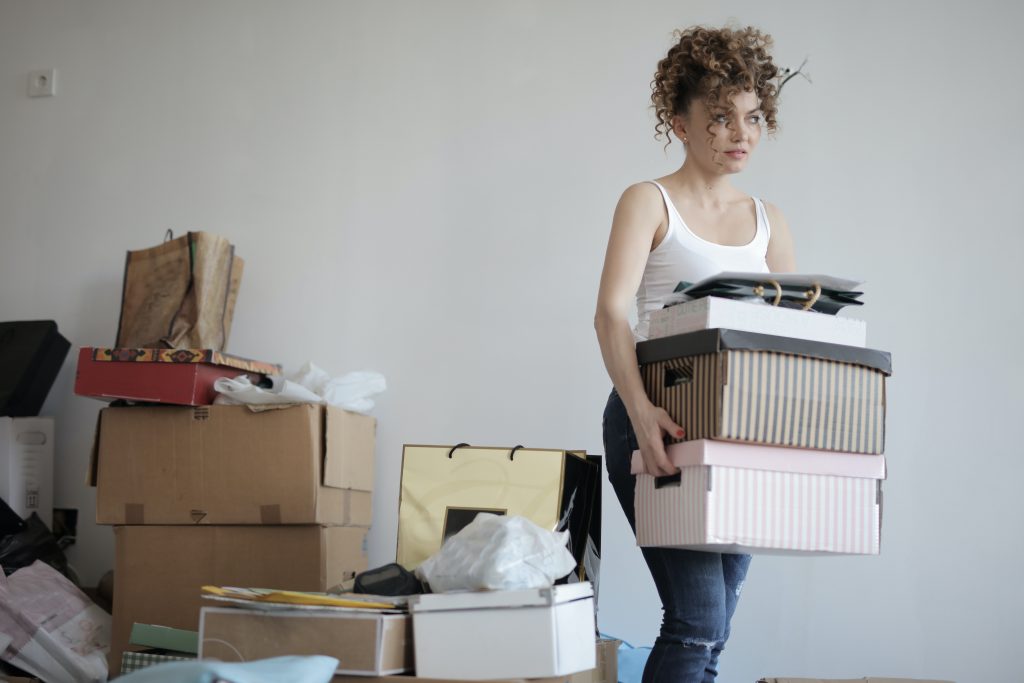
I recently attended a workshop to brainstorm ways of improving efficiency in the workplace. As we explored innovative ways of achieving more from our minutes, it became clear that, like most workplaces, we unquestionably equated productivity with success. Ironically, I work in the hospice sector. It seems that in a culture that values speed, we believe that productivity is a measure of success in all areas, even showing compassion to the dying! Perhaps it is time we question the assumption that faster is always better and open ourselves to the possibility that some things cannot be hurried.
I am a get shit done kind of person, and my carefully curated toolkit of organising, cramming, self-discipline, multi-tasking, speed and efficiency have served me well as I have juggled raising 3 children and managing a home with running an organisation and studying for a degree. So, it came as a shock when I hit a wall in my spiritual life and found I could not progress without unlearning the very skills that have brought me this far in life.
Dallas Willard once called hurry, “the great enemy of spiritual life in our day.” He said that if we want to live a spiritual life “we must ruthlessly eliminate hurry from our lives”.
Ouch!
As I have opened my mind to this uncomfortable truth I have discovered that it applies to other areas of life, in fact hurry undermines most things of lasting worth and value. For example, an experienced mental health professional noted that most people are too busy live an emotionally healthy life. Their work had shown them that counselling can only get a person so far, real inner change requires time to practice self-awareness, reflect and make intentional choices. This cannot be done in a hurried life.
Healthy relationships require time to be present, to notice the needs of others, and to listen properly. Love cannot be rushed. Kosuke Koyama said that
“God walks slowly because he is slow. If he were not love, he would have gone much faster. Love has its speed, it is an inner speed, it is a spiritual speed. It is a different kind of speed to the technological speed to which we are accustomed. It is slow, yet it is lord over all the other speeds since it is the speed of love”

There are two kinds of time, Chronos time, which is chronological, and Kairo’s time. Kario’s is about meaningful moments; they stand out from normal time because they are moments of opportunity to have an impact or always be remembered. Significant moments can so easily be dismissed as an interruption if you hurry.
I once attended a mindfulness retreat where the teacher claimed that they could increase our life by 80%. He stated that much of our life passes us by because we are not present enough to experience it. We know the joy on offer without taking the time to savour simple moments of joy. We cannot truly live this moment, if our mind is in the next. Could it be that in our relentless quest to achieve happiness, we actually rush past the very thing we seek?
Pause: take a moment to consider the real cost of moving too fast.
I have found there are some common indicators that I need to adjust my speed dial. They include:
- Substituting the buzz of achieving tasks for enjoying the experience.
- Thinking about what’s next rather than focusing on what I am doing.
- Clumsiness, mistakes, and forgetfulness.
- A tight chest, fast breathing and feeling tense (the body doesn’t lie!)
- Feeling irritated by interruptions, learner drivers, and people who want to browse in the centre of a supermarket isle!
- Feeling restless and unable to relax when I stop.
- Compulsive overworking at the expense of things like sleep, exercise, and spiritual practices.
- Numbness, disconnection and self-absorption.
- Escapist behaviours
- Hoarding energy
Pause: take a moment to consider how your speed dial indicates it’s in the danger zone, and where the dial is right now?
If these pauses feel frustrating to you, maybe you too need to slow down 😉

Slowing my pace is proving to be a long-term incremental change rather than a quick fix. I guess I shouldn’t be surprised that slowing can not be achieved quickly! I am however finding the following 3 step process helpful in resetting the pace of my day:
- Accept the frustration that comes with slowing down and not being able to achieve all you could.
If fast has been your Midas operandi for a long time and you have come to thrive on the buzz of adrenaline it offers, this will feel excruciating for you! When I first begun, I found myself inwardly screaming like an addict in withdrawal and I’ve had to learn to hold such feelings with an equal amount of compassion and resolve. John Ortberg recognises how difficult some people will find such a change when he writes “To choose to live an unhurried life in our day, is somewhat like taking a vow of poverty in earlier centuries. It is scary, it is an act of faith, but there are deep riches on the other side.
2. Choose to honour your values.
I regularly need to remind myself what really matters to me, as its often the opposite of what I feel I want in the moment. When I recognise the incompatibility between core values such as relationships, peace, meaningful contribution and a hurried pace, I am more able to redefine what a successful day looks like.
3. Re-evaluate your plan.
I ask myself what is realistic to achieve at a pace that honours my values? This list is always shorter than the to do list I start out with!
When considering this remember to factor in margin for unforeseen problems and unplanned opportunities. I have come to realise that so much of my hurry comes from planning my time with the assumption that everything will go to plan. In reality it rarely does. A fear of wasting time through being early, has many a time led me to arrive late and flustered. I may not have wasted time, but I have wasted emotional energy and the opportunity to enjoy a few calm moments that could change the course of my day.
I am finding that to do this I need to emotionally let go of what I can physically achieve and prioritise what actually needs to get done today. To be able to manage my daily pace, I periodically need to reduce my overall regular commitments to make this realistic. When I feel at the mercy of my diary, I remember Stephen Coveys uncomfortable but powerful statement that I am ultimately in control of my schedule.
Most of us in the West have brought into the lie that we can do, be, and have everything we want. In truth we cannot do everything, but we can do what truly matters to us! So do what is necessary to live in alignment with your values, do it with love and attention, and make peace what remains.











